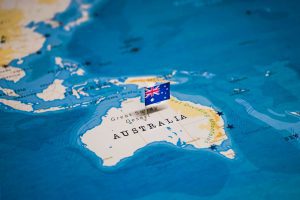Macquarie University is a public research university in Sydney, Australia. It was founded in 1964 and is named after Lachlan Macquarie, the third Governor of New South Wales. Macquarie is ranked among the top 1% of universities in the world and is known for its world-class research and teaching.
Macquarie has a strong reputation in a number of fields, including business, engineering, health, human sciences, medicine, and science. The university is also home to a number of nationally recognized research centers, including the Australian Graduate School of Management and the Macquarie University Hospital.
Courses, Fees, Eligibility

| Course | Fees (ADU) | Eligibility |
|---|---|---|
| Bachelor of Economics | $40,800 | Completed secondary school with a minimum ATAR of 75 |
| Bachelor of Mathematical Science | $39,600 | Completed secondary school with a minimum ATAR of 75 and a Band 4 or higher in Mathematics |
| Bachelor of Actuarial Studies | $40,800 | Completed secondary school with a minimum ATAR of 80 and a Band 4 or higher in Mathematics and a Band 4 or higher in English Advanced |
| Bachelor of Arts | $35,800 | Completed secondary school with a minimum ATAR of 70 |
University Ranking
Macquarie University is ranked #130 in the QS World University Rankings 2024, #175 in the Times Higher Education World University Rankings 2023, and #201-300 in the Academic Ranking of World Universities 2023. This makes it the 10th ranked Australian university overall in the world ranking systems.
Macquarie is also ranked highly in a number of subject areas, with three ranked in the top 50 globally and seven in the top 100 (QS World University Rankings by Subject, 2023):
- Arts and Humanities: #32
- Business and Economics: #108
- Education and Educational Research: #59
- Electrical and Electronic Engineering: #133 (tie)
- Environment/Ecology: #79
- Life Sciences and Medicine: #372 (tie)
- Social Sciences and Management: #66
Important Dates
Session 1
- 20 February: Study period start
- 5 March: Last enrolment date
- 17 March: Teaching census
- 10 April: Recess start
- 17 April: Teaching census (Full Year)
- 21 April: Recess end
- 24 April: Session classes resume
- 28 April: Last withdrawal without fail
Session 3
- 11 December: Last enrolment date
- 17 December: Teaching census
- 21 December: Last withdrawal without fail
Other important dates
- 2 January: Recess end (Session 3)
- 3 January: Session classes resume (Session 3)
- 22 January: Last day of classes (Session 3)
- 23 January: Exams start (Session 3)
- 27 January: Study period end (Session 3)
- 27 January: Exams end (Session 3)
- 9 February: Result publication date (Session 3)
Admission Process
- Choose your course. View the list of courses offered by Macquarie University and choose the one that is right for you.
- Check the entry requirements. Make sure that you meet the entry requirements for the course you have chosen. These can vary depending on the course, but may include academic qualifications, English language proficiency, and work experience.
- Apply. You can apply to Macquarie University directly or through the Universities Admissions Centre (UAC). If you are an international student, you may need to apply through an authorized agent.
- Submit your supporting documentation. This may include your academic transcripts, English language test results, and work experience documentation.
- Receive your offer. If you are successful in your application, you will receive an offer from Macquarie University. To secure your place, you will need to accept the offer and pay a deposit.
- Enrol in your course. Once you have accepted your offer, you will need to enrol in your course. This involves completing some administrative tasks, such as providing your personal information and choosing your units.
Cut Offs
| Program | ATAR Cut-off |
|---|---|
| Bachelor of Arts | 70.00 |
| Bachelor of Commerce | 75.00 |
| Bachelor of Engineering (Honours) | 80.00 |
| Bachelor of Information Technology | 75.00 |
| Bachelor of Laws | 85.00 |
| Bachelor of Medicine, Bachelor of Surgery | 95.00 |
| Bachelor of Nursing | 85.00 |
| Bachelor of Psychology (Honours) | 80.00 |
| Bachelor of Science | 75.00 |
Placement
- PACE placements: PACE placements are short-term work placements that students can complete alongside their studies. These placements give students the opportunity to gain real-world experience and make connections with potential employers.
- Careers and Employment Service: The Careers and Employment Service provides students with a range of support services, including career counseling, resume and cover letter writing assistance, and interview preparation.
- Job boards and databases: The university has a number of job boards and databases that students can use to search for jobs and internships.
Here are some tips for Macquarie University students who are looking for employment:
- Start planning for your career early. Talk to your career counselor about your career goals and develop a plan to achieve them.
- Get involved in PACE placements and other extracurricular activities. This will help you gain real-world experience and make connections with potential employers.
- Utilize the Careers and Employment Service. The staff at the Careers and Employment Service can help you with all aspects of your job search, from writing a resume to preparing for an interview.
- Network with professionals in your field. Attend industry events and reach out to people on LinkedIn.
Scholarships
Macquarie University offers a wide range of scholarships for both domestic and international students. These scholarships are awarded based on a variety of factors, including academic achievement, financial need, equity and inclusion, and sporting or cultural excellence.
Some of the most popular Macquarie University scholarships include:
- International Scholarships: Macquarie has one of the most generous international scholarship programs in Australia. Scholarships are available for students from all over the world, and are awarded based on academic achievement, financial need, and equity and inclusion.
- Domestic Scholarships: Macquarie offers a range of scholarships for domestic students, including scholarships for academic excellence, sporting achievement, and equity and inclusion.
- Graduate Research Scholarships: Macquarie offers a number of scholarships for graduate research students, including scholarships for specific projects or in general.
Here are some tips for applying for a Macquarie University scholarship:
- Start early! The application deadlines for many scholarships are several months before the start of the semester.
- Read the eligibility criteria carefully and make sure that you meet all of the requirements.
- Write a strong and persuasive personal statement. This is your opportunity to tell the scholarship committee why you deserve the scholarship and how it will help you achieve your academic goals.
- Proofread your application carefully before submitting it.
Notable Alumni
- Business: Anthony Albanese (Prime Minister of Australia), Lucy Turnbull (Australian businesswoman and philanthropist), and David Solomon (CEO of Goldman Sachs)
- Engineering: Dr. Alan Finkel (Australia’s Chief Scientist), Dr. Michelle Simmons (Australian physicist and quantum computing pioneer), and Dr. Hugh Bradlow (Australian engineer and inventor)
- Health: Professor Catherine Price (Australian epidemiologist and public health expert), Professor Nick Talley (Australian gastroenterologist and researcher), and Professor Tim Spector (British epidemiologist and geneticist)
- Human Sciences: Professor Marcia Langton (Australian Aboriginal academic and public intellectual), Dr. A.C. Grayling (British philosopher and author), and Professor David Kilcullen (Australian counterterrorism expert and author)
- Medicine: Professor Jane Halliday (Australian cancer researcher and oncologist), Professor Chris Baggoley (Australian pediatrician and infectious diseases expert), and Professor David Handelsman (Australian endocrinologist and reproductive biologist)
- Science: Professor Brian Schmidt (Australian astrophysicist and Nobel Prize laureate), Professor Veena Sahajwalla (Australian materials scientist and engineer), and Professor Suzanne Cory (Australian molecular biologist and cancer researcher)
FAQs?
The entry requirements for Macquarie University vary depending on the course you are applying for. However, most courses require you to have completed Year 12 with a competitive ATAR score. You may also need to meet additional requirements, such as specific prerequisites or portfolio submission.
You can apply to Macquarie University online through the Universities Admissions Centre (UAC). The application process opens in June each year and closes in October.
The acceptance rate for Macquarie University is around 40%, which means that it is a relatively selective university. However, your chances of getting in will depend on a number of factors, including your ATAR score, prerequisites, and portfolio submission.








